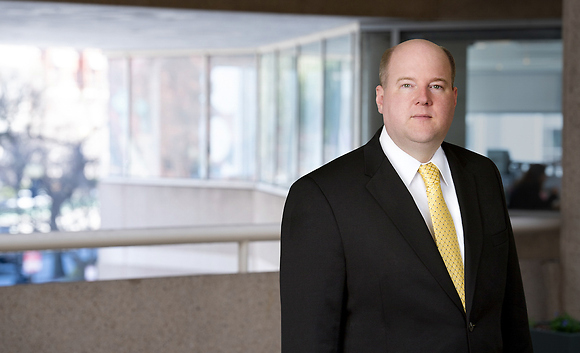Supreme Court Alert: Supreme Court Declines to Address the Viability of the Equitable Mootness Doctrine
Please visit this link to view the article on Lexology's website.
On October 12, 2021, the U.S. Supreme Court denied, without comment, a petition for a writ of certiorari in a case challenging the doctrine of equitable mootness. Equitable mootness has been described as a “narrow doctrine by which an appellate court deems it prudent for practical reasons to forbear deciding an appeal when to grant the relief requested will undermine the finality and reliability of consummated plans of reorganization.”[1] By his petition, David Hargreaves—an unsecured noteholder of debtor Nuverra Environmental Solutions Inc. (“Nuverra”)—asked the high court to address whether this judicially-created doctrine is inconsistent with the obligation of federal courts to hear and decide cases within their jurisdiction.[2]
Before filing for bankruptcy, Nuverra faced a liquidity crisis and had “approximately $500 million in secured debt and an uncontroverted value of approximately $302.5 million.”[3] Consequently, Nuverra could not fully satisfy the claims of its secured creditors, much less provide any recovery to its unsecured creditors.[4] In order to allow Nuverra to reorganize under these circumstances, Nuverra’s senior creditors funded gifted distributions—referred to as “horizontal gifting”—to unsecured creditors.[5] Under the plan, essential unsecured creditors, such as trade creditors, were slated to receive a 100% recovery by virtue of the gifted distributions, but unsecured noteholders, such as Hargreaves, were slated to receive only about five percent of their claim.[6] At confirmation, Hargreaves objected to this classification scheme.[7] The Bankruptcy Court in the District of Delaware overruled Hargreaves’ objection and confirmed the plan.[8]
On appeal, the District Court of Delaware applied the Third Circuit’s test for equitable mootness, which asks “(1) whether a confirmed plan has been substantially consummated; and (2) if so, whether granting the relief requested in the appeal will (a) fatally scramble the plan and/or (b) significantly harm third parties who have justifiably relied on plan confirmation.”[9] The District Court held that the “appeal meets the criteria for equitable mootness” because “correcting unfair discrimination and improper classification issues would require undoing the Plan and would necessarily harm third parties.”[10] Hargreaves’ subsequent appeal to the Third Circuit was met with the same fate. The Third Circuit held that Hargreaves’ appeal is equitably moot, reasoning that “the only way to give Hargreaves the money he wants is to give all [creditors in his class] a 100% refund . . . which would fatally scramble the Plan and significantly harm third parties.”[11]
The Supreme Court’s denial of Hargreaves’ petition for certiorari from the Third Circuit’s decision is the latest example of the Supreme Court denying appeals questioning the equitable mootness doctrine.[12]
Kevin C. Maclay, Todd E. Phillips, and Kevin M. Davis are Members of Caplin & Drysdale’s Bankruptcy and Complex Litigation practice groups. Shahriar M. Raafi is an Associate in both groups.
| Kevin C. Maclay | Todd E. Phillips | Kevin M. Davis | Shahriar M. Raafi |
[1] In re Trib. Media Co., 799 F.3d 272, 277 (3d Cir. 2015).
[2] Hargreaves v. Nuverra Env’t Sols., No. 21-17, 2021 WL 2890270 (U.S. July 6, 2021).
[3] In re Nuverra Env’t Sols., Inc., 590 B.R. 75, 79 (D. Del. 2018).
[4] Hargreaves v. Nuverra Env’t Sols., No. 21-17, 2021 WL 4057489, at *8 (U.S. Sept. 1, 2021).
[5] In re Nuverra Env’t Sols., Inc., 590 B.R. at 82.
[6] Id. at 79-80.
[7] Id. at 80.
[8] Id. at 81.
[9] Id. at 83.
[10] Id. at 89.
[11] In re Nuverra Env’t Sols., Inc., 834 F. App’x 729, 736 (3d Cir. 2021).
[12] See, e.g., Bennett v. Jefferson Cnty., 899 F.3d 1240 (11th Cir. 2018), cert. denied, 139 S. Ct. 1305 (2019); In re Trib. Media Co., 799 F.3d 272, cert. denied sub nom. Aurelius Cap. Mgmt., L.P. v. Trib. Media Co., 577 U.S. 1230 (2016); In re Charter Commc’ns, Inc., 691 F.3d 476 (2d Cir. 2012), cert. denied sub nom. Law Debenture Tr. Co. of N.Y. v. Charter Commc’ns, Inc., 569 U.S. 968 (2013).



